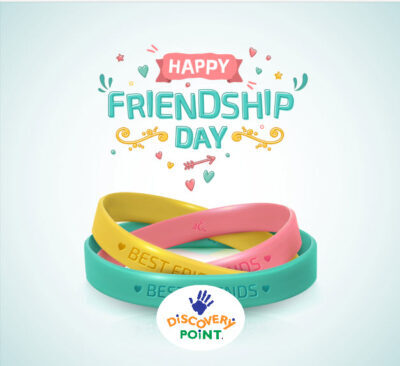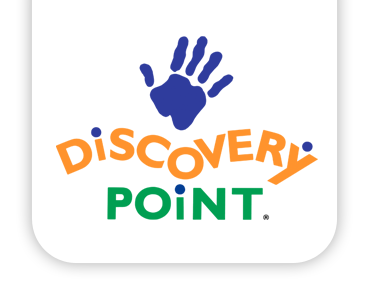Discovery Point Blog

Celebrate International Day of Friendship & Learning How to Be a Good Friend
July 30, 2021 marks the 10th International Day of Friendship. This day was first proclaimed by the UN General Assembly in 2011 based upon the belief that friendship inspires peace and understanding not only between individuals but also among communities and countries.
Through this resolution, the UN has marked a special day each year for governments and organizations large and small to spread awareness about the importance of engaging in dialogue and promoting mutual understanding.
The creation of International Friendship day was inspired by the shared spirit of human solidarity that enables peoples to live peacefully in the world. In its essence, that shared spirit is a form of friendship. Celebrating friendship on this designated day helps reinforce the idea that small gestures made by people of all ages, even children, can make a huge difference.
Teaching Your Children About Friendship
International Friendship Day also presents a wonderful opportunity for parents to converse with their children about what it means to truly be a great friend. While it may be hard to remember a time when you didn’t understand how to be a friend, the truth is this ability is not necessarily something we are born with. In many cases, we must be taught how to be kind, generous, and appreciative in order to build friendships that last.
This month, consider working with your children on the concept of friendship. There are a variety of tools and activities you can use depending on their age and understanding, as well as their own personal experiences with friendship.
Here are some ideas for teaching your children the important life skill of being a great friend so they may experience the joys that come with friendship.
Start With a Conversation
Having a one-on-one with your child on the topic of friendship can help lay the groundwork for a better understanding of this concept and get the wheels turning in their head about ways they can be a good friend. Highlight some of the main qualities of a good friend, and ask your child whether they have noticed these qualities in their friends or themselves.
Qualities to touch on include:
- Being trustworthy
- Being reliable
- Keeping in touch over time
- Remembering special days, such as birthdays and shared memories
- Enjoying spending time together
- Being willing to help out in times of need
- Making you feel happier when you’re around them
You could also point to your child’s favorite characters in books, movies, and television series. Ask them whether those characters display the above qualities and how that affects their friendships with others.
Role Play Situations in Which Being a Friend Is Challenging
Displaying the characteristics listed above isn’t always easy, especially when you’ve had little practice doing so. Time and again, we see our children acting selfishly or getting worked up over situations that to us do not necessarily seem worth it.
However, it’s so important to remember that choosing to act appropriately isn’t something little ones know how to do right off the bat. It takes time and effort, and having guidance from a parent about what to do during tough situations can help when these situations inevitably arise.
Contemplate a few examples of situations from your own child’s life in which they may have dealt with disappointments or disagreements with a friend. Then, write these scenarios on individual index cards to be used in a role playing game.
Here are some example situations:
- Your friend has taken the toy you were planning to play with.
- You want to do one activity, while your friend wants to do another.
- Your friend is sad because their pet died.
- Your friend gave you a birthday present you don’t like.
Reenact the scenarios with your child, taking turns being the friend or the person who must make a decision about how to react. Don’t hesitate to make the wrong choice in some cases to show your child how small decisions can make big differences in the ultimate outcome of a situation.
Give Your Child Great Examples of Friendship to Refer to
Make sure your child sees you acting as a good friend. Simple, everyday actions like calling your friends on their birthdays, introducing yourself to a new neighbor, or stepping in to offer a helping hand during an emergency will show your child examples of what they can do to be a better friend. There are also plenty of other resources to use, from popular books like The Rainbow Fish and Harry Potter to classic television series such as Sesame Street and Veggie Tales.
If you have multiple children, there are also opportunities for friendship to blossom within your own home. Practicing friendship with a sibling offers a great foundation for lifelong friendships both inside and outside the family.
The value of friendship is not difficult to point out, if only we take the effort to notice it! This July 30th, and all month long, don’t overlook the importance of teaching your children about what it takes to be a great friend.


